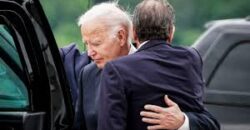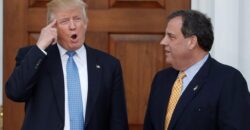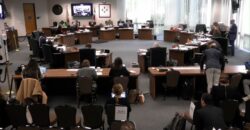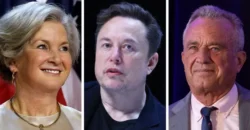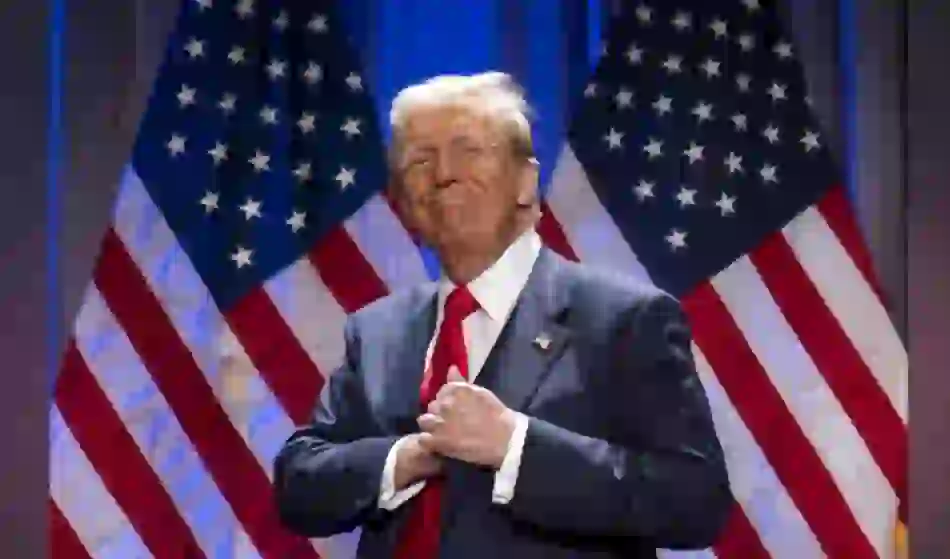As a candidate for president, Donald Trump promised sweeping changes to economic policy which would, in his telling, lead to greater growth and prosperity across the nation, and in Texas.
The once and future president promised to slash taxes and spending, and to impose sweeping tariffs on imports. He criticized the Inflation Reduction Act, one of outgoing President Joe Biden’s signature pieces of legislation. He vowed mass deportations of unauthorized immigrants, and his campaign considered ideas such as devaluing the U.S. dollar and reining in the historic independence of the Federal Reserve. He also vowed to restart LNG exports and roll back environmental regulations affecting the region’s oil and gas industry.
Now that he has won the election, economists say, it’s too soon to make confident predictions about what the impact of such policies would be.
“The big central theme right now is we’ve got a high level of uncertainty,” said Robert Spendlove, chief economist for Houston-based Amegy Bank. “It was higher two weeks ago, but we’ve still got a lot of uncertainty.”
Some of Trump’s campaign promises, Spendlove continued, might be better understood as negotiating tactics.
Parker Harvey, senior regional economist for Workforce Solutions for Houston and the Gulf Coast, made a similar point about uncertainty.
“As far as taxes, tariffs, immigration, the Federal Reserve and interest rates, etc., right now, we only have comments made during the campaign to go on,” he said this week. “It’ll probably take several more months, if not longer, before we see any substantive policy changes.”
Ed Hirs, energy fellow at the University of Houston, noted that political considerations will likely factor into forthcoming policy debates.
“It is unlikely that a second Trump administration will want to dial back spending from the Bipartisan Infrastructure Bill and Inflation Reduction Act,” he said. “Much of that spending is taking place in red states, and eliminating any of it will risk a backlash in the midterm elections in two years.”
Similar considerations might come into play, Hirs continued, if Trump moves to curtail the independence of the Fed or reduce Social Security benefits, proposals that some groups advising his campaign have advanced: “These actions would be fraught with political implications that even a Republican-controlled Congress may not want to face.”
In the throes of the campaign, some policy advocates tried to put hard numbers on what Trump’s proposals might cost. The Tax Foundation, which has advocated for lower taxes, found that even the most modest of Trump’s proposed tariffs would cost American consumers and companies more than half a trillion dollars annually, as well as wiping out 684,000 jobs across the country.
Of all of Trump’s economic proposals, tariffs might be the idea that has caused the most consternation in Houston, a hub of foreign trade and home to one of the nation’s busiest ports.
“If you were to take him literally, an across-the-board increase in tariffs would result in higher inflation,” Spendlove said.
“If he goes through with this initiative, domestic inflation will rebound with a vengeance,” said Hirs.
Still, local economists are cautious about making sweeping predictions at this stage.
“On one hand, some policy changes could stimulate growth via more disposable income and higher wages, but also apply upward pressure on inflation, thereby slowing the pace of interest rate cuts over the next year or two,” Harvey of Workforce Solutions said. “That obviously has implications for housing demand, including mortgages and other types of borrowing.
“Other policy changes could apply downward pressure on the volume of goods passing through the Port,” he continued, “while others still may affect workforce availability, and therefore employment growth.”


